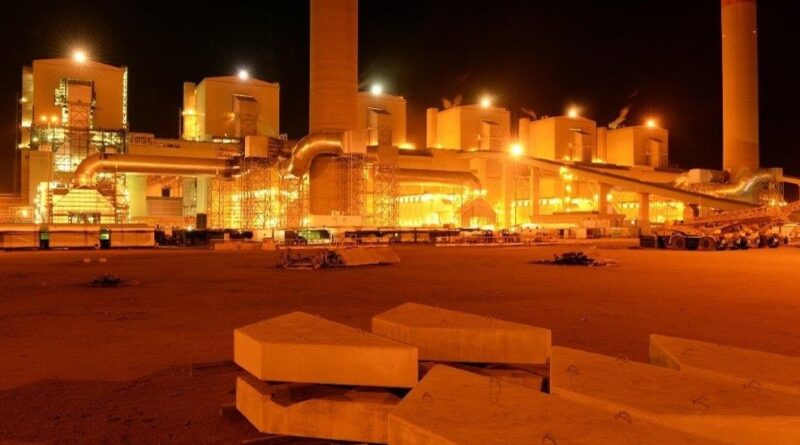Free Market Foundation: Eskom is still broken
While we may have enjoyed a relative break from the worst of loadshedding, we must not grow complacent. The causes of Eskom’s incompetence, and South Africa’s electricity crisis, are all still present. And this shameful state of affairs will only change when there is a radical policy shift towards free markets and privatisation.
As it stands, Eskom is performing slightly better than in the dark years of constant loadshedding because the parastatal has been allowed to exempt itself from the excesses of political procurement and government overreach. Instead of being beholden to the inherently corrupt state procurement system of tender-fraud and BEE deals, Eskom can now purchase parts and supplies directly from the manufacturer. Something that should have been allowed from the beginning.
But as recent returns to limited loadshedding, and skyrocketing electricity prices, have shown, Eskom is still not an ideal institution. On top of this, much of our escape from loadshedding can also be attributed to our declining economy. Heavy industry is shutting its doors and turning off production, as it can’t afford to keep running its smelters, forges, factories and mines when the lights can go off at any time. And generators are becoming too expensive as an alternative.
The constant failure of Eskom has little to do with its management or leadership. Of course, a good manager is key. But for something as crucial to an economy as electricity, we cannot just rely on hoping for a decent boss to turn things around. We must mitigate risk, and construct policies and institutions that lead to good managers. As it stands, bad leadership at Eskom is not a bug, it’s a feature. Decent leaders of the parastatal are an exception, not the rule. We must diagnose the disease and not just one of its symptoms.
The root cause of all Eskom’s problems is that it is a state-run monopoly. This means that it will inevitably face political interference, it lacks the incentive to do well, and there are no alternatives when it fails to perform its role.
Political interference is especially pronounced because Eskom is a parastatal underneath an ANC government. As former Eskom CEO Andre de Ruyter reported, there is still a prevailing cult-like adherence to Marxism in Eskom and the halls of government. Marxism is a widely discredited and intellectually bankrupt ideology that has no place in the meritocratic powerplants of an electricity producer. Yet, one of our most important utilities has spent the past decades having to put the outdated madness of a German laggard before engineering and good sense.
Eskom also lacks the incentive to do its job properly. As a state monopoly, it will always be bailed out. To the tune of R254 billion in 2023, and a total of R496 billion between 2008 and 2023. There would be no need to plug the tax shortfall with a VAT increase if Eskom didn’t need to be bailed out. But Eskom knows it will be bailed out, so it doesn’t perform efficiently. Instead, it just muddles along, taking decades to build powerplants, failing to repair its infrastructure, and furnishing its staff with lavish salaries despite repeated failure.
On the other hand, private sector businesses must perform well to get paid. A private electricity producer doesn’t receive any cash unless a user is purchasing electricity that they are producing. If they fail to repair their utilities or expand to meet demand, they lose money. And when they lose money, they don’t have the taxpayers to fall back on. This incentive ensures that they keep innovating, expanding, maintaining and acting generally competent.
One of the most terrifying prospects of Eskom’s incompetence is that there are no alternatives. Due to government regulations and caps, private power producers are too small and still have to engage with Eskom’s grid and management.
If Eskom fails, the country fails. When, if there were many private companies, if one fails, consumers can just change to another. The risk of grid collapse is lowered, as many private companies feed into the grid, spreading out the risk. We shouldn’t put all our eggs in one basket. And doubly, we shouldn’t rely on a single entity for something so important.
A flood of private companies would also help stabilise the price of electricity. Prices will not drop as low as they were in the 90s, which was completely unsustainable and unrealistic, but will likely eventually drop lower than it is now – as private competition encourages price cutting. To ensure South Africa’s economic future, we need plentiful and consistent electricity. We can’t keep relying on Eskom. Eskom needs to be de-bundled, with its assets being sold in a transparent auction system where they go to many competent companies, without allowing any single company to form a monopoly. Regulations must also be scrapped that hold-back private sector involvement in electricity production and transmission.
Once all that is accomplished, heavy industry will be able to start back up again, creating many new jobs. We won’t have to worry about rolling blackouts again, attracting increased investment. And the impending doom of grid collapse will become just a distant, bad memory.




